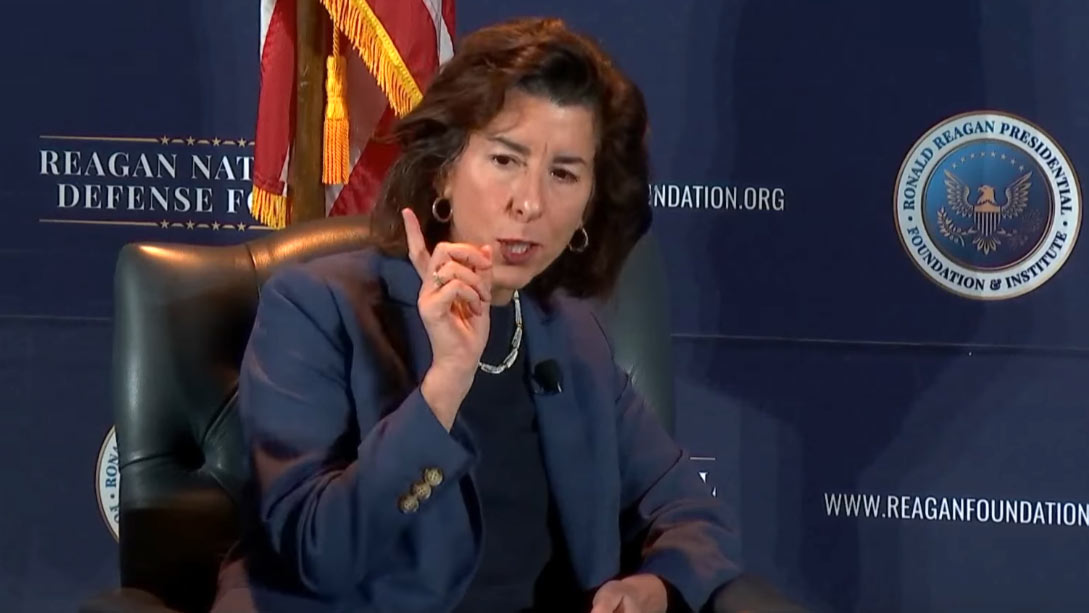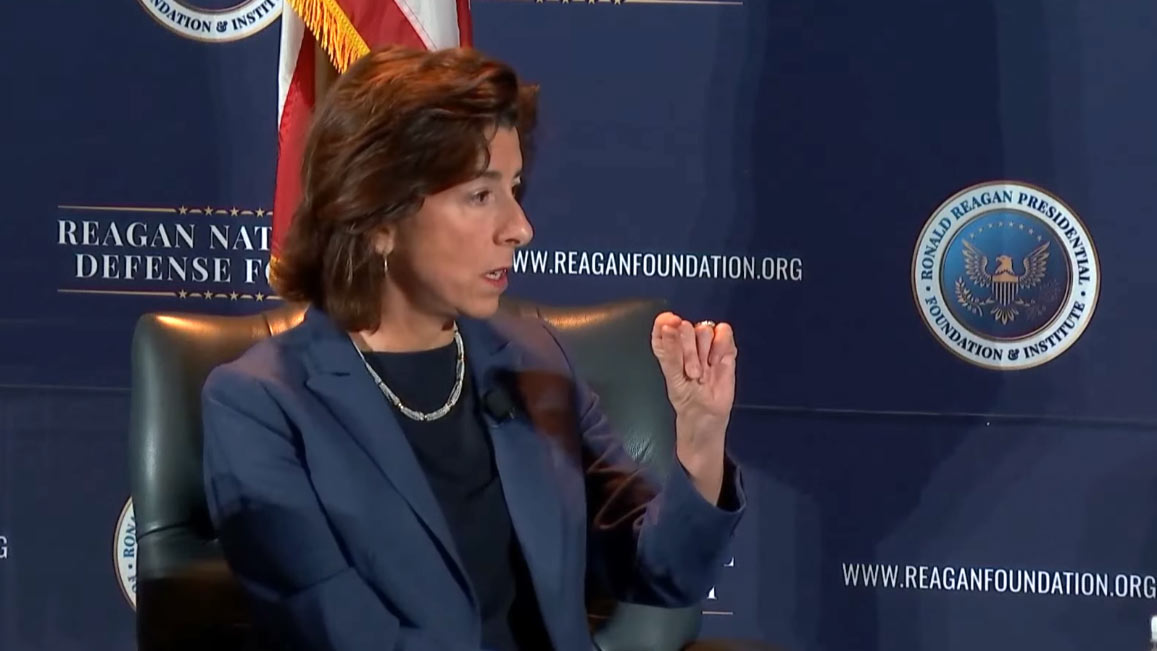
Update, 12/4/2023, 8.00 pm PT:
Tom's Hardware has received the following statement from an Nvidia spokesperson:
“We are engaged with the U.S. government and, following the government’s clear guidelines, are working to offer compliant data center solutions to customers worldwide.”
Original story:
The US Commerce Secretary, Gina Raimondo, is determined to stop cutting-edge AI chips from getting into China's hands. During a speech at the Reagan National Defense Forum (RNDF) this weekend she appealed for more cash, so her department could effectively apply sanctions. It is also notable that she warned sanctions-swerving GPU and AI chip makers that things are going to change – concerning chip redesigns to circumvent tech sanctions.
“We can't let China get these chips, period,” emphasized Raimondo in her on-stage 'Fireside Chat' with CNBC’s Morgan Brennan. But to be successful in this goal – with all its national security implications - she made it clear that more funding was needed, and a deeper relationship with tech companies would be required going forward.
The funding question seems straightforward. Raimondo told attendees at the RNDF that the Commerce Department’s Bureau of Industry and Security, responsible for managing export controls, only received $200M. More would be needed. “That’s like the cost of a few fighter jets. Come on,” appealed the Commerce Secretary. According to our own sourced figures, a Lockheed F-35A fighter jet costs between $80M and $100M. An F-22 Raptor costs nearly $150M. It seems reasonable to say that keeping AI from China - and out of its missiles, drones, aircraft, and tanks - is probably worth a greater investment.
“Nvidia, for example”
The other important topic highlighted by Raimondo was better cooperation with GPU and AI chip makers, to keep their cutting-edge technologies away from China. “The Chinese are going to do everything they can to find loopholes but we have to get faster more agile and think differently about our strategies,” the US Commerce Secretary said.
Moving onto the specifics of improved cooperation with US and allied tech companies, Raimondo said she had noticed “Nvidia for example” was slicing chip specs “just below that [specification] cut.” This was traditionally how export controls worked, admitted Raimondo, but said she was seeking “a new way to have a continuous dialogue with industry where our Engineers can go toe-to-toe with their engineers, and we go to them and say our intent is to deny China technologies that can do XYZ.” In other words, sanctions may be readjusted somehow to target capabilities rather than levels of performance.

If companies don’t cooperate with this new type of relationship, the US Commerce Secretary hinted that specific export cut lines could be adjusted “the very next day.”
The above speech from Raimondo is a clear indicator that the government wants US firms to follow not just the letter, but the spirit of the rules concerning AI and computing export controls. We discussed this in our report last month after the Cerebras boss called Nvidia ‘Un-American’ for its apparent sanctions-swerving GPU reconfiguring.
Of course, the US Commerce Secretary would like there not to be sanctions like those outlined above, for the greater benefit of American companies. However, she said her department was “eyes wide open about the threat from China.” She implored tech companies to “work together so your businesses are strong and lead the world, but also so our national security is protected.”
US officials going to Taiwan to explain China chip curbs
US officials plan to travel to Taiwan to explain the finer points of advanced technology curbs aimed primarily at China. Reuters reports that Taiwan Economy Minister Wang Mei-hua will greet a delegation tasked with explaining the complicated new US rules to the many important tech companies on the democratically-governed island.
The US officials, who were not named by Taiwan’s Central News Agency, will visit next month and concentrate their efforts around important chip hubs in Hsinchu and Tainan.







